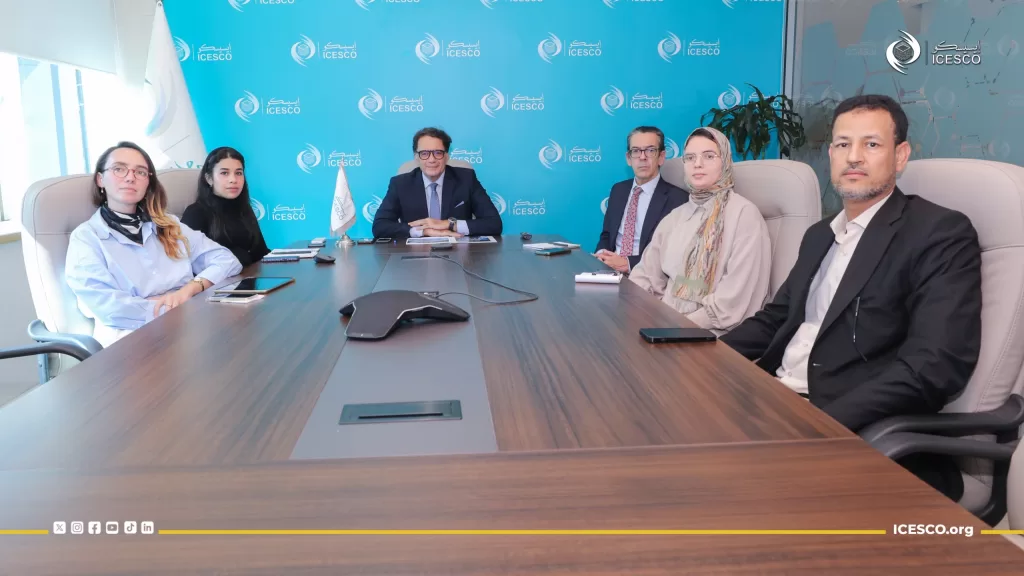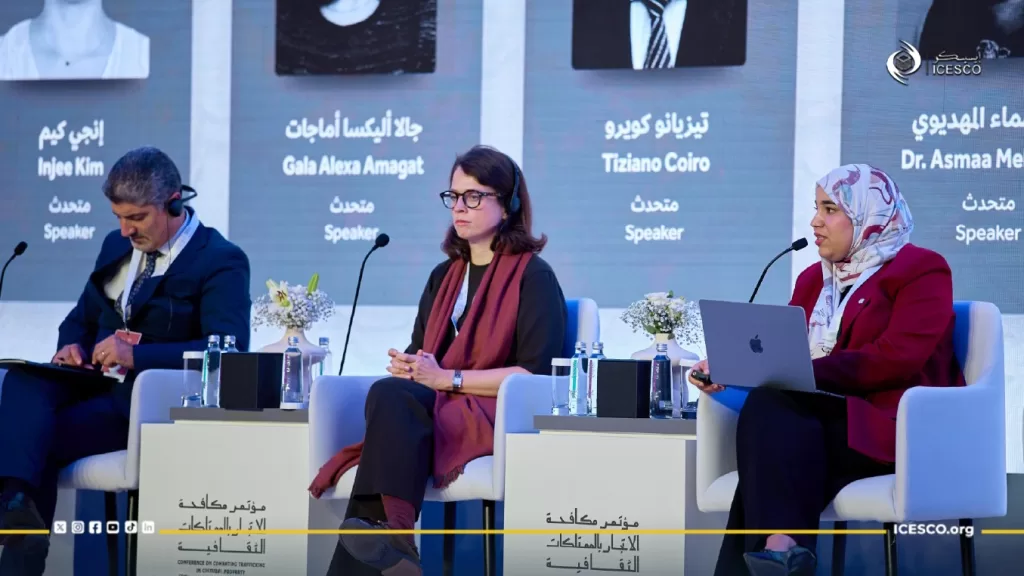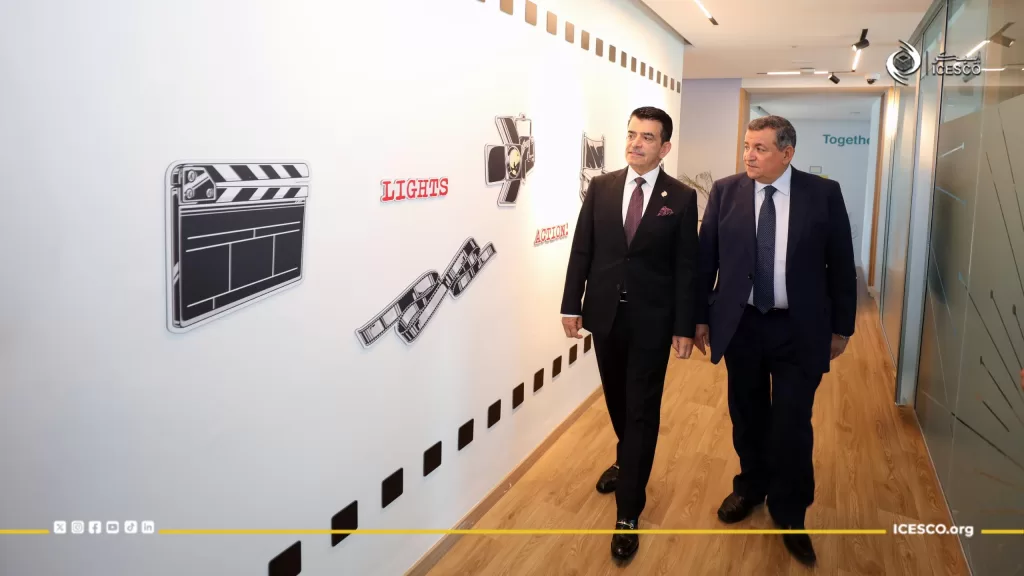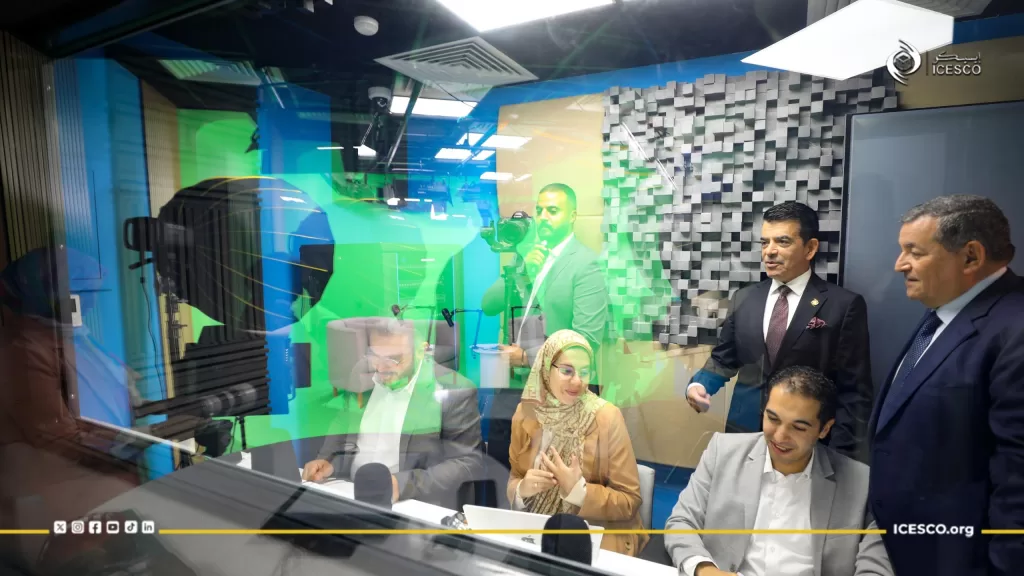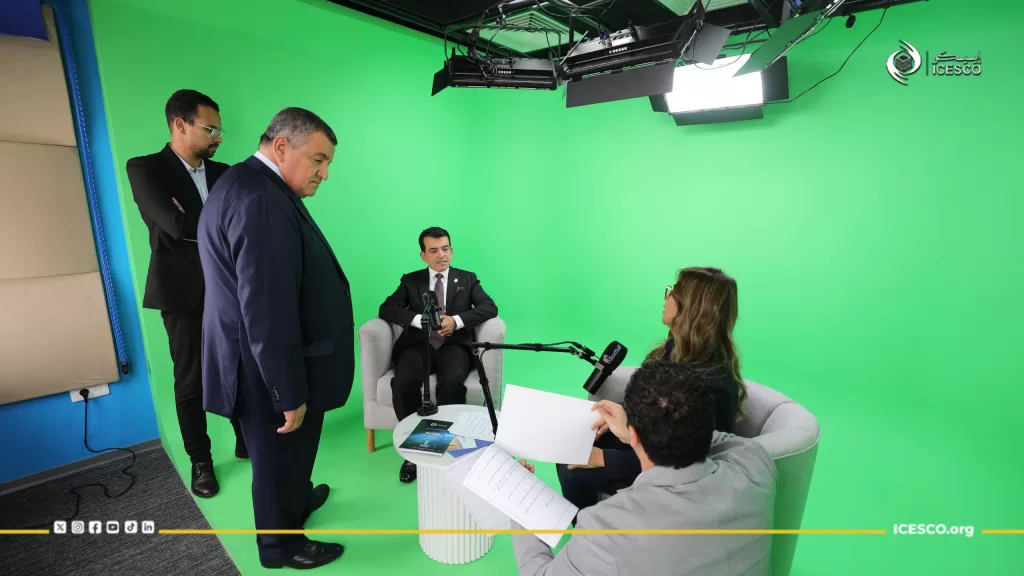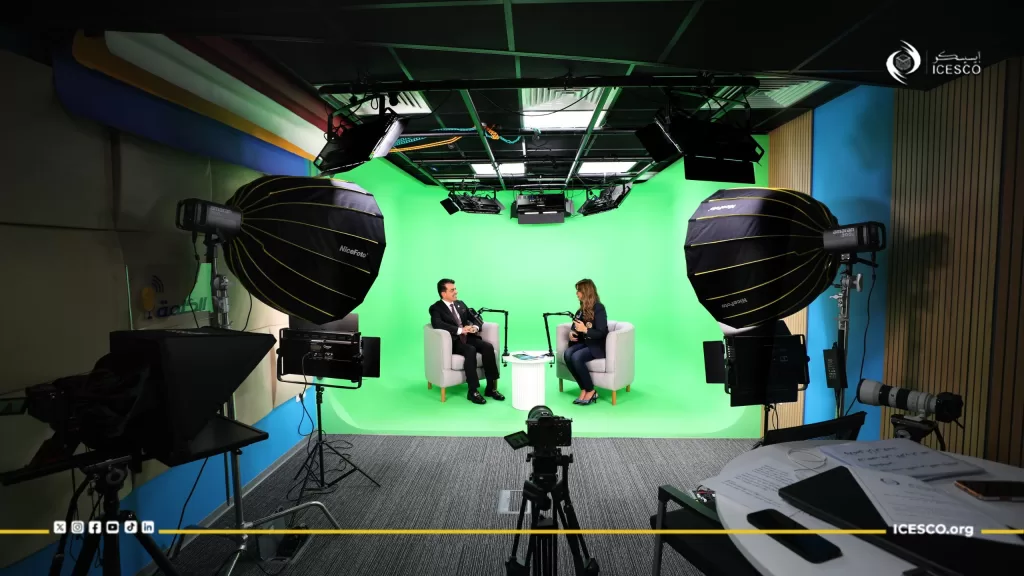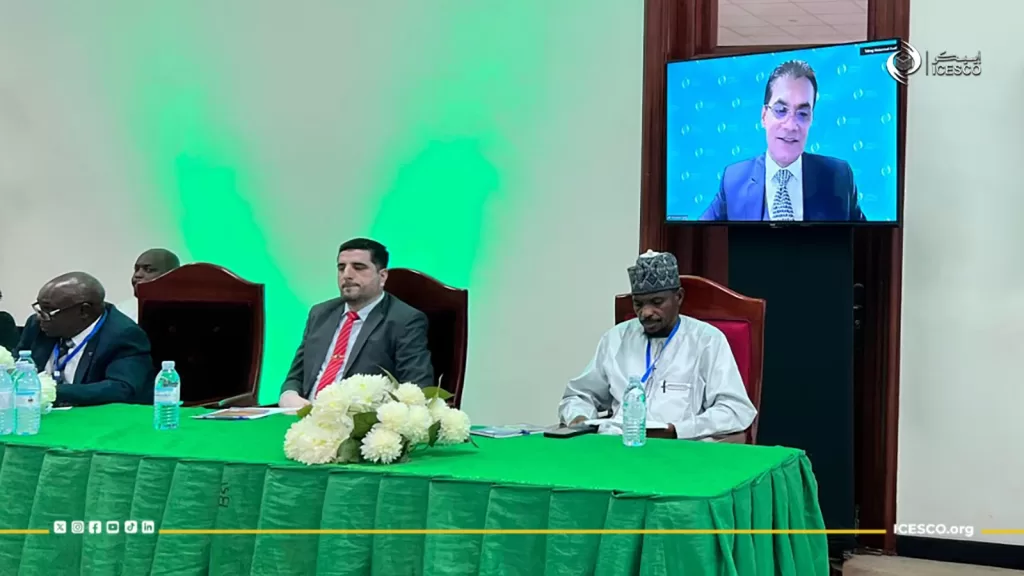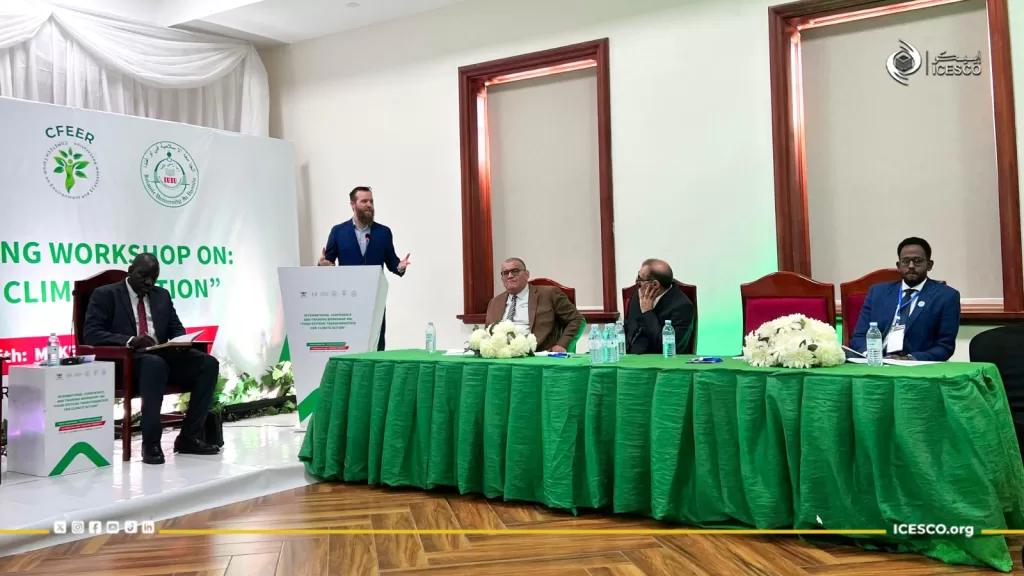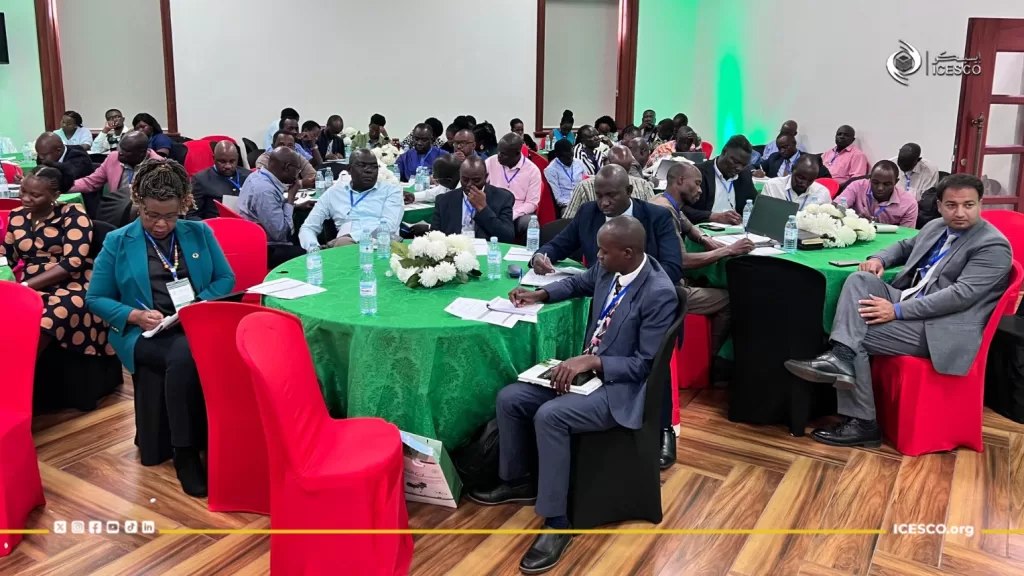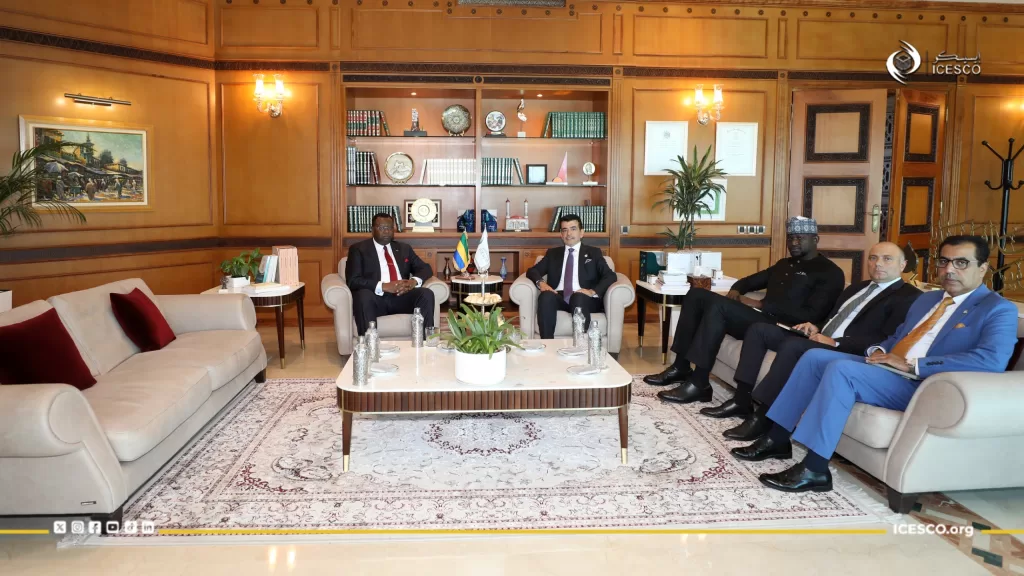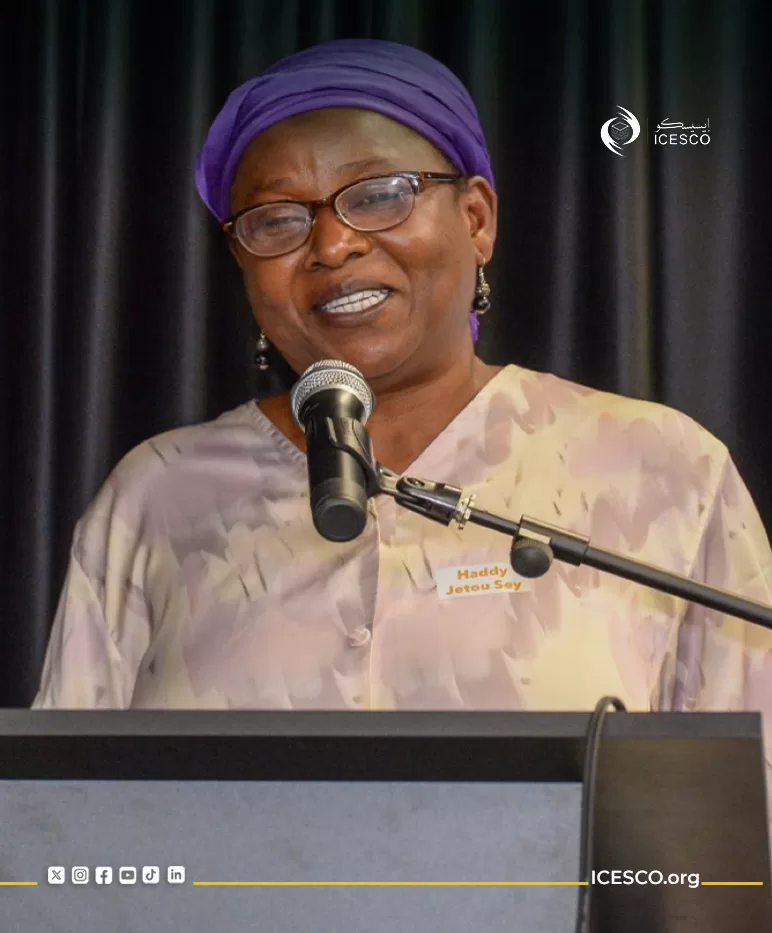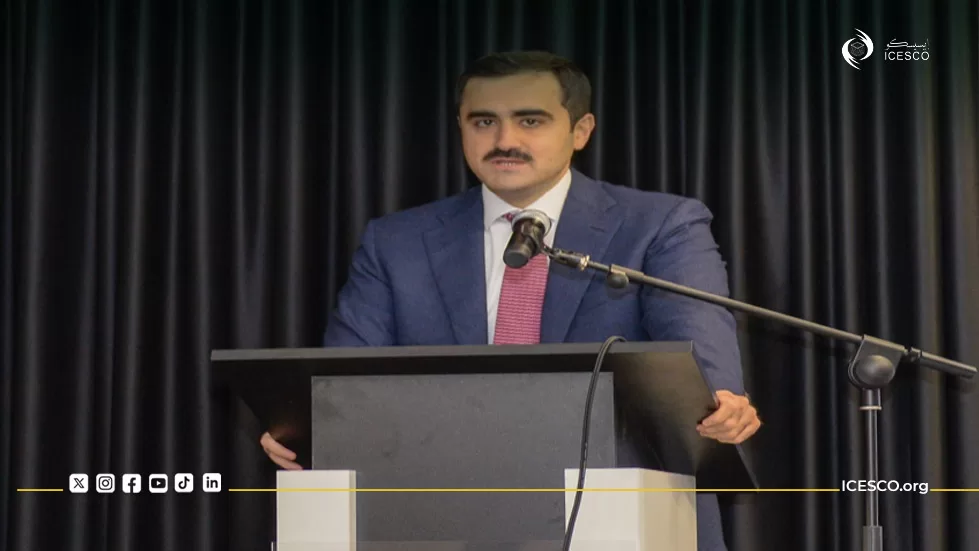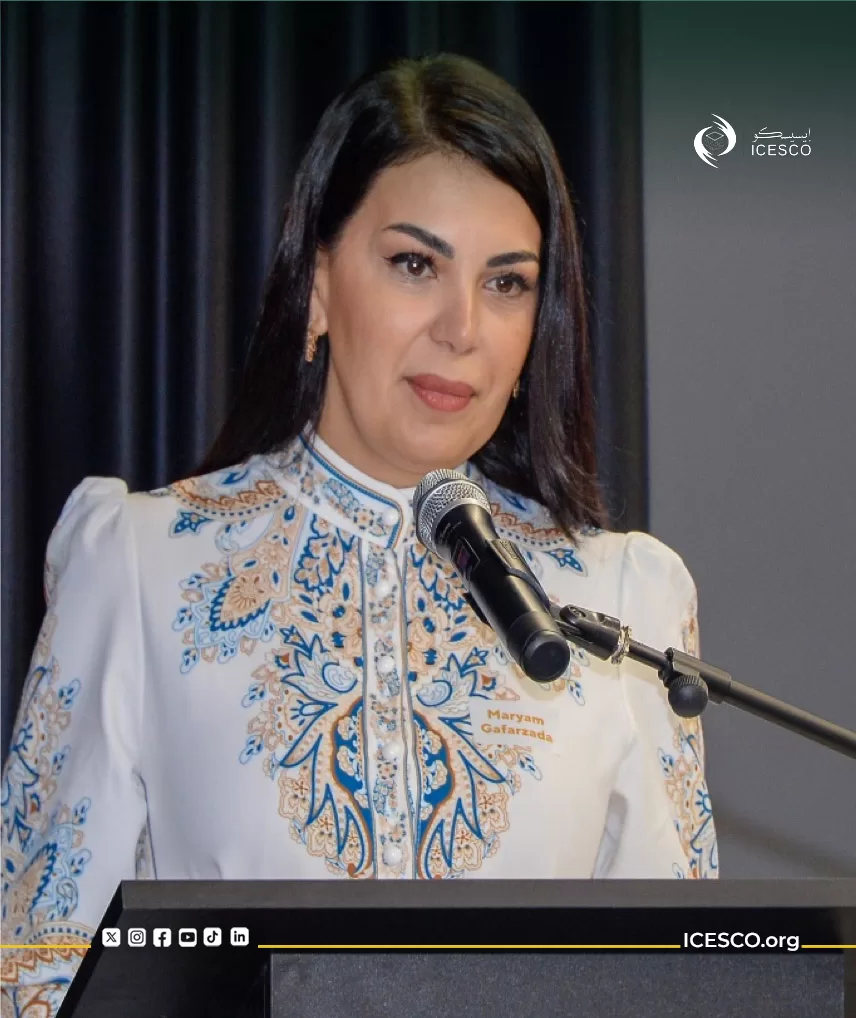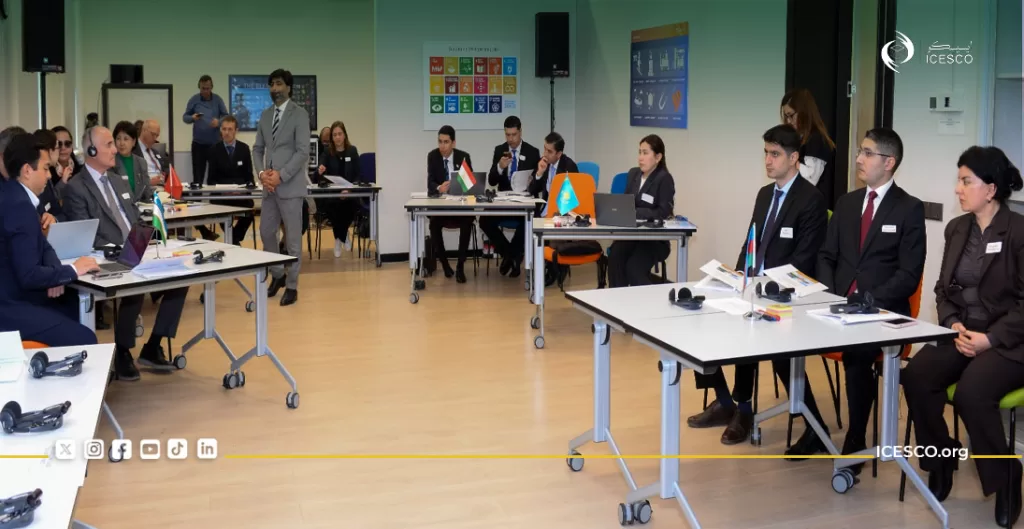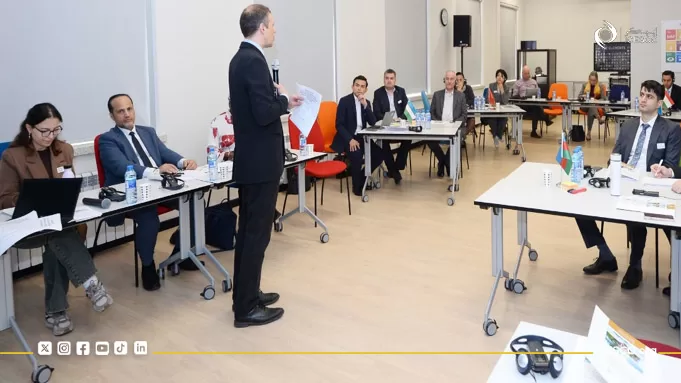The Islamic World Educational, Scientific and Cultural Organization (ICESCO) held its sixth workshop on the applications of artificial intelligence in cultural and creative industries “ICESCO Immersiv’Art” (IIA), under the theme “AI and Graphic Creation: The Case of Video Mapping.” The workshop took place at ICESCO Headquarters in Rabat as part of the Organization’s efforts to explore the growing intersection between modern technology and contemporary arts and to strengthen the presence of digital creativity within the cultural landscape of Member States.
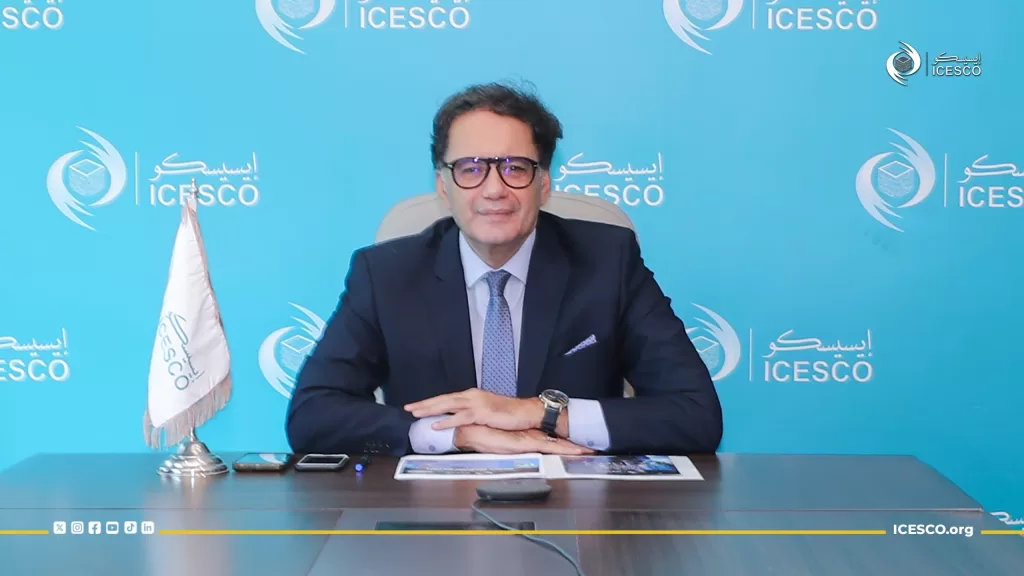
The workshop, organized on 30 October 2025, opened with an address by Dr. Mohamed Zinelabidine, Head of ICESCO’s Culture Sector, who emphasized that digital creativity has become an essential tool for cultural transformation, contributing to the development of educational methods, artistic interaction, and heritage preservation in the digital age. He stressed that ICESCO attaches great importance to creating new spaces for dialogue among artists and experts in the fields of art and technology.
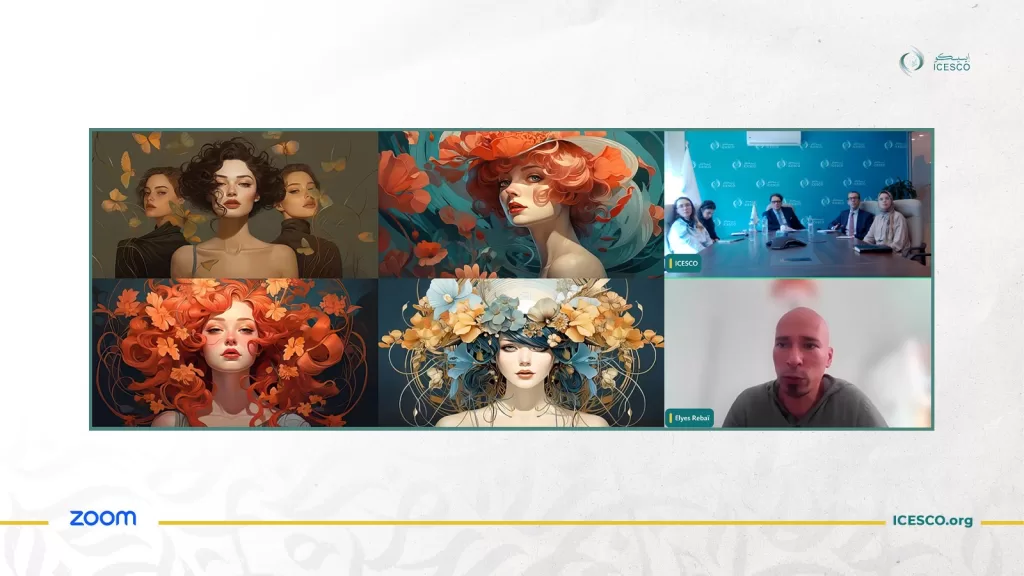
During the session, Elyes Rebaï, Creative Director at Designlab and Expert in Digital Technologies, gave a presentation on the potential of artificial intelligence techniques in video mapping, an innovative visual art form that transforms architectural facades into interactive spaces. He also addressed the technical, artistic, and ethical challenges associated with integrating artificial intelligence into graphic creation. The workshop featured insightful discussions among several cultural experts, including Mr. Mohamed Amine Hammami, Ms. Manuela Nicoletti, and Ms. Zineb Bougrine, who raised key questions about the concept of creativity in the era of artificial intelligence.
